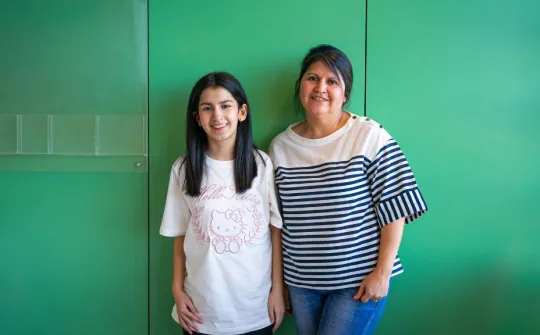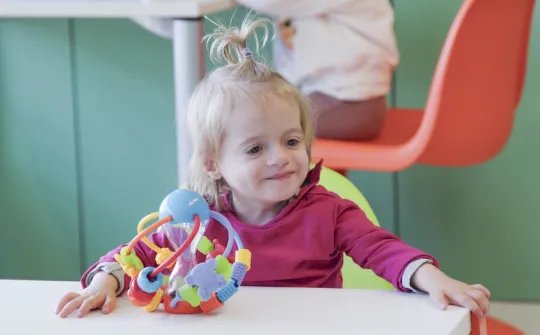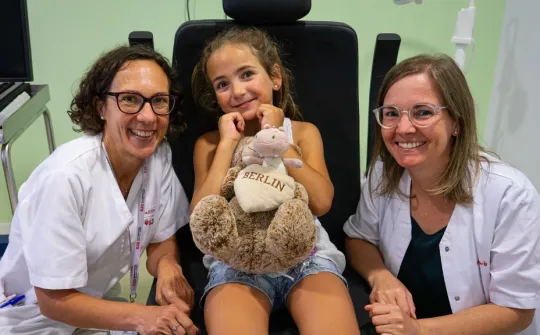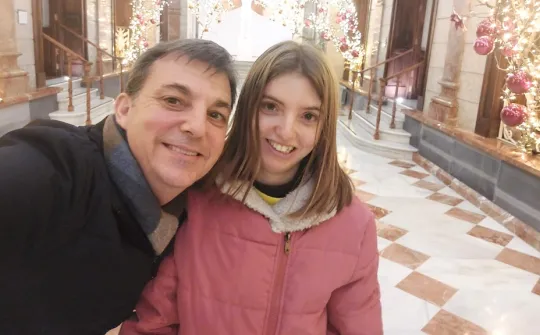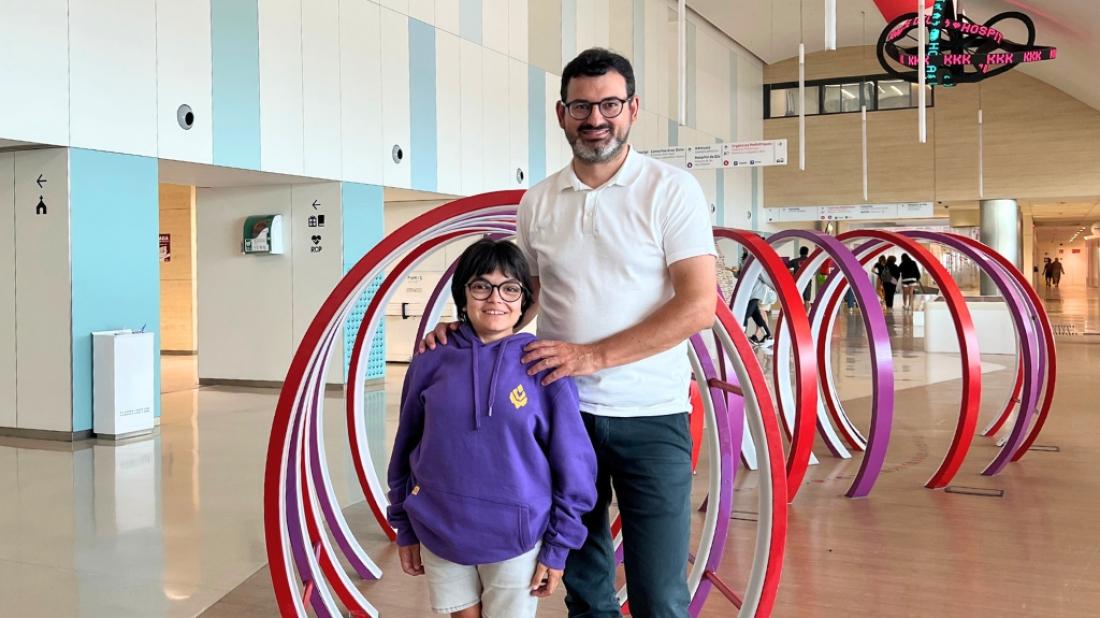
Sira, diagnosed with Sly syndrome, received a bone marrow transplant that slowed the effects of this rare disease, and now she is taking long-term immunoglobulin treatment.
From the moment Sira was born, her parents began to notice small things that were different about her. Doctors who saw her attributed these changes to her age, but after a year and a half of tests and uncertainty, she finally received a diagnosis: mucopolysaccharidosis type VII (MPS7), known as Sly syndrome, an ultra-rare degenerative disease with an uncertain life expectancy and no available treatment at this moment in time.
In the hope of finding a solution, the family began their search across the world until finally getting in touch with Doctor Kato in Japan, who had treated a similar case with a bone marrow transplant. ‘We took a flight to Vienna, where the doctor was attending a conference, so he could explain our options to us,’ explains Albert, Sira’s father.
After getting several vastly different medical opinions, medical professionals at the SJD Barcelona Children's Hospital and the Hospital de Sant Pau settled on performing a low-intensity bone marrow transplant on Sira. The procedure was performed in 2010, and, although it worked initially, it gradually lost its effectiveness. Consequently, Sira had a second transplant in 2011, much more intense this time, which carried significant risks. Albert remembers even being told that Sira may not make it.
Against all odds, the procedure was a success. While before Sira's body did not produce the enzyme responsible for intracellular detoxification, the newly generated enzymes allowed her body to resume this function, preventing damage to her organs. As a result, the girl’s cognitive skills were protected. Albert remarks that ‘nowadays, Sira's case stands as a medical journal article that set a precedent: for any patient that is born with this rare disease, the first recommendation is to have a bone marrow transplant.’
Sira is now 17 years old, in her second year of her Baccalaureate, plays grade five piano and is part of the SJD Youth Association. ‘Although there are some lasting effects from the years she was untreated, our goal was for her to have a fulfilling life, free from cognitive impairment – and we achieved it’, he proclaims proudly.
Secondary immunodeficiencies
One of the side effects of the transplant is that Sira needs to take immunoglobulins every fortnight to treat her secondary immunodeficiency. Dr Laia Alsina, Head of the Allergology and Clinical Immunology Department, explains that secondary immunodeficiencies (SID) are abnormalities in the immune system that are acquired over the course of a person's life. ‘Nowadays, they are most frequently caused by the use of therapies that suppress the immune system in cases of autoimmune diseases, blood cancers or after a hematopoietic stem cell transplant (HSCT), which replaces practically the entire immune system,’ she notes.
‘These therapies, despite being necessary, suppress key defence mechanisms and, for some patients, this results in a reduced immunoglobulin count – essential antibodies that protect us from bacteria and viruses,’ continues Alsina. In these cases, human immunoglobulins have to be administered, which are obtained from donated plasma.
Donating plasma
In Sira's case, as she now needs replacement immunoglobulin treatment, this also meant that her family became more aware of plasma donation. 'I used to feel faint after seeing just a drop of blood, but I started to donate blood during Sira’s long admissions to hospital for her transplants. One day they told me that, as my blood is AB positive, it wasn’t used as often, instead encouraging me to donate plasma,’ explains the father.
Since then, Albert has been donating plasma once a month. ‘The process takes about an hour and it's so simple. Your blood type doesn't matter, and you can help children and adult patients alike. I am absolutely delighted to do it, because I know that people like my daughter are directly benefitting from it,’ he states.
Leaving the SJD Barcelona Children's Hospital
At 17 years old, Sira is ready to move on from the pediatric healthcare system into the adult system, and the family is apprehensive. ‘We’ve felt at home at SJD – well looked after and supported. We know this step is necessary for Sira to continue treatment and maintain her quality of life, but after so many years with medical staff who have been like a second family, it's normal to feel a kind of loss,’ adds Albert.
